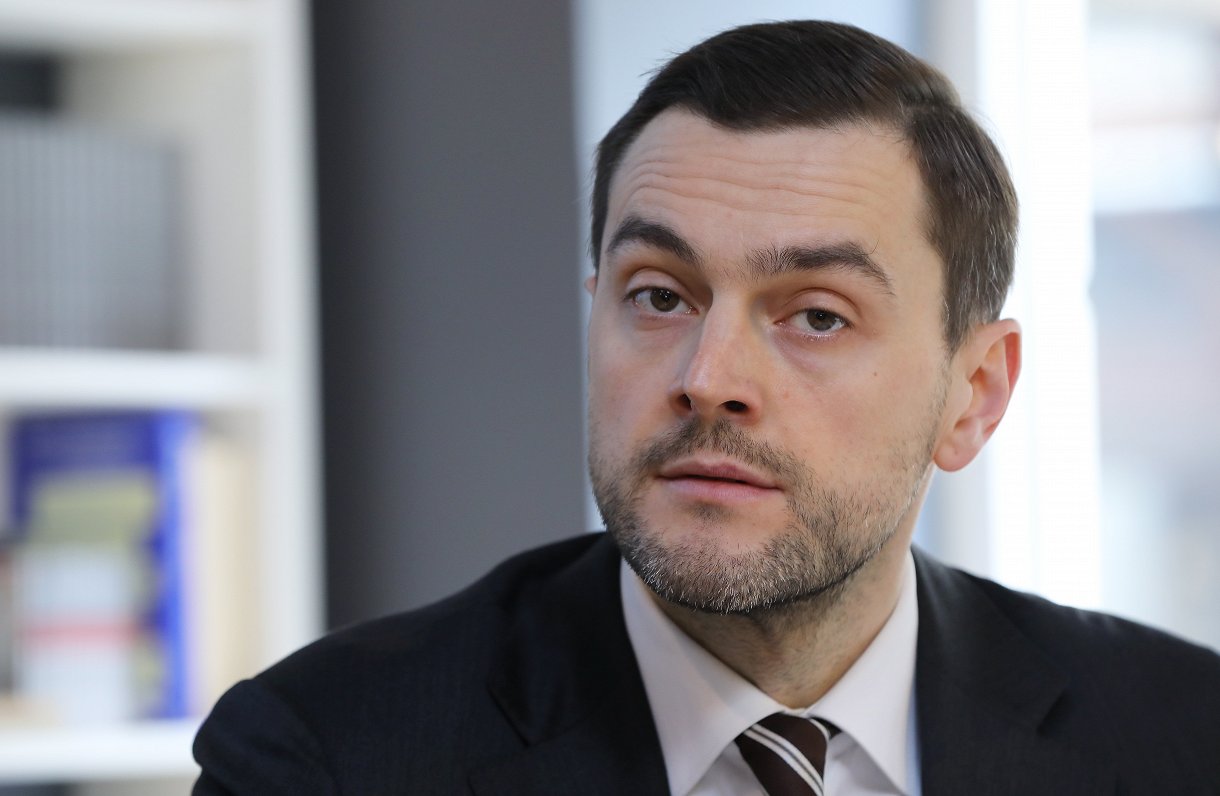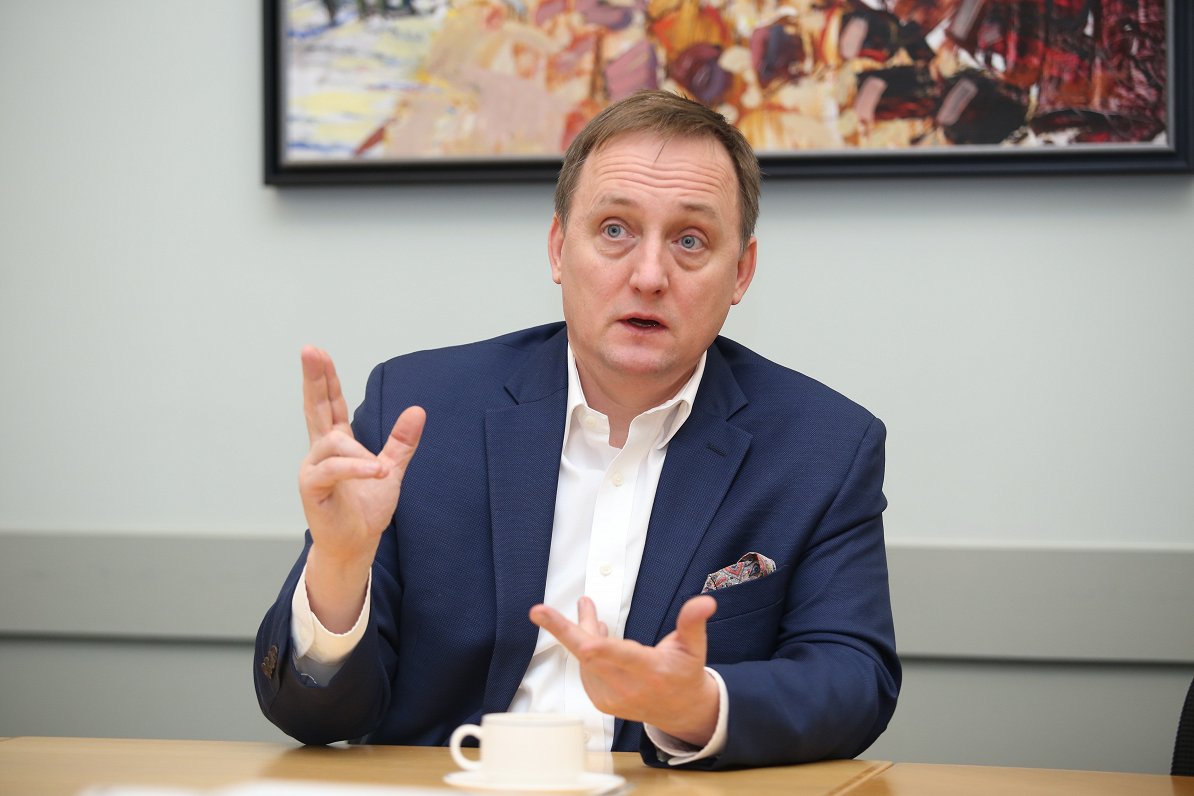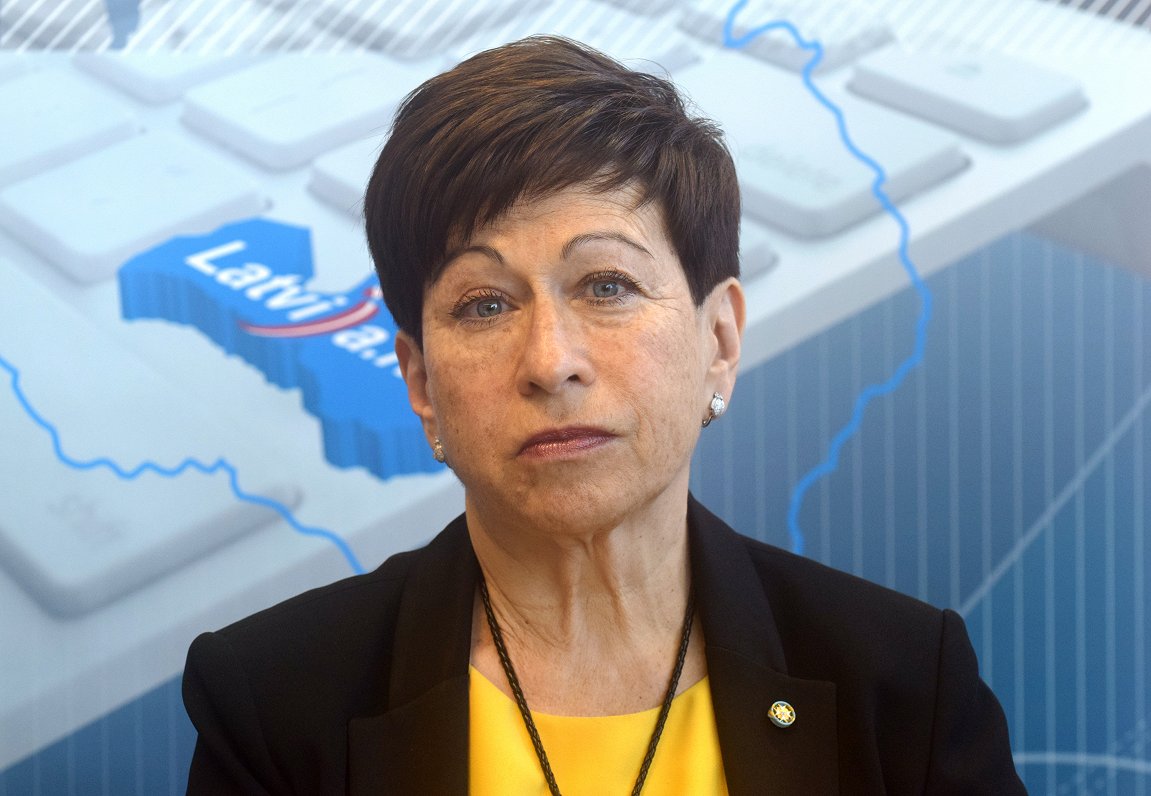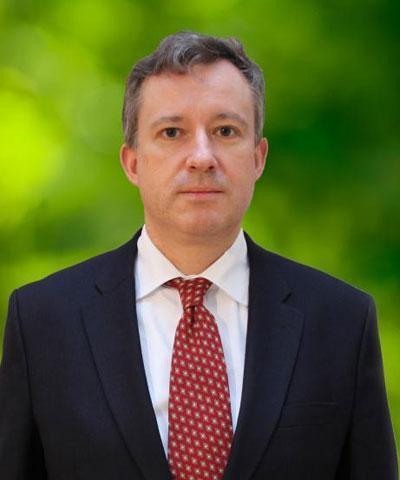By Friday, November 29, no fewer than ten members of the Saeima may submit nominations for the office of Governor of the Bank of Latvia. So far, no candidate has been nominated for this position, but four potential candidates have been telling Saeima deputies why they would like to do the job.
Discussions are also understood to be underway among the parties of the ruling government coalition on nominating one government candidate who would be all but assured of securing the position given the government majority in Saeima.
Here are the names and CVs of the four contenders.
-
Reinis Bērziņš (born July 28, 1983), Chairman of the Board of Development Finance Institution Altum since October 2015.
 Photo: LETA, Evija Trifanova
Photo: LETA, Evija Trifanova
Previous work experience : From March 2013, Adviser to President Andris Berzins on legislative and legal issues. From August 2011 to February 2013 Director of the Patent Office, November 2009 to February 2011 Member of the Council of SIA Lattelecom and from October 2007 to April 2009 Member of the Board of SIA Latvijas garantiju aģentūra. He started his career in 2005 in the advertising department of the Latvijas Avīze newspaper and magazine publisher. After that, he served as an assistant, advisor and consultant to a number of People's Party politicians. In 2005 he was a candidate in the Cēsis City Council elections from the People's Party list, and in 2010 he was a candidate in the 10th Saeima election from the list "For the Good of Latvia".
Education: secondary education obtained at Cesis City Gymnasium, after which he obtained second-level professional higher education in Latvian University Faculty of Law. After that he graduated from the Riga Graduate School of Law, Master's program "Law and Finance", BA School of Business and Finance, International Business and Banking, Swiss Business School Master's Program in Business Management.
What has he said he would so if put in charge of the Bank of Latvia?
- Reduction of the Bank of Latvia's costs by reducing the number of employees. Likewise, the remuneration of the Governor of the Bank of Latvia (currently more than EUR 12,000 a month), which is too high, should be reduced. Berzins, however, refrained from specifying how much that pay should be, and the extent to which the central bank staff could be reduced.
- Restoring the reputation of the Latvian banking sector, establishing a clearer position of Latvia in relation to the decisions of the European Central Bank, promoting lending, proposing initiatives for the development of the national economy.
-
Mārtiņš Kazāks (born September 19, 1973 in Liepāja), Member of the Council of the Bank of Latvia since August 2018.
 Photo: LETA, Evija Trifanova
Photo: LETA, Evija Trifanova
Previous work experience: November 2005 - Chief Economist of AS "Swedbank Latvia", since January 2010 - Deputy Chief Economist of "Swedbank Group". From 1994 to 1995, Chief Economist, Department of Macro-fiscal Analysis and Forecasting, Ministry of Finance. He has also worked as a lecturer at the Stockholm School of Economics in Riga and elsewhere. Former member of the President's Strategic Analysis Commission, also member of the Fiscal Discipline Council.
Education: Secondary education at Liepāja Rainis Secondary School No. 6, followed by a Bachelor's degree in Economics from the University of Latvia in 1995. Graduated in economics from the University of Cambridge in 1996. He received a Master's degree in economics from the University of London in 1997 and a doctorate in economics in 2005.
What has he said he would so if put in charge of the Bank of Latvia?
- Reducing the Bank of Latvia's costs and improving efficiency. Reducing the number of employees in the central bank, starting with senior management. For example, the Bank of Latvia Council should take over the functions of the Executive Board.
- The Bank of Latvia must become a stronger backbone of the Latvian financial system. In this respect, it would be important to combine the functions of the central bank and the financial market supervisor - the Financial and Capital Market Commission (FCMC) - under the umbrella of the Bank of Latvia.
- The Bank of Latvia can provide much more support to the economy, for example in the field of technology. Similarly, the Bank of Latvia must be broadly involved in discussions on the economy - the central bank must be more open.
- Active work in Europe, namely, it is important for Latvia to participate in discussions on the monetary policy of the eurozone in order to "make the right decisions", because "a strong eurozone also means a strong Latvian economy".
-
Inna Šteinbuka (born October 8, 1952 in Riga), Member of the Fiscal Discipline Council since October 2018
 Photo: LETA, Artūrs Neitāls
Photo: LETA, Artūrs Neitāls
Previous work experience: Member of the Fiscal Discipline Council. Former Head of the European Commission Representation in Latvia. Previously, Director of the Economic and Regional Statistics Department of Eurostat from 2005 to 2011, previously chaired the Public Utilities Commission from 2001. Member of the Economists' Union 2010. In 2009 she was awarded the prestigious Order of Three Stars. Her CV is available online.
Education: Higher education, Dr. habil. econ. In 1975 graduated from Latvian State University (now - University of Latvia), Faculty of Economics, Department of Economic Cybernetics.
What has she said she would so if put in charge of the Bank of Latvia?
- In an interview with Latvian Radio Šteinbuka emphasized that she has experience in leading a large organization, and at one time she headed the Eurostat department following a corruption scandal, so her experience with a demotivated staff may also be useful.
- She was not in a hurry to announce bank wage cuts, as good professionals can easily find well paid jobs in Latvia and abroad, and if the bank has the capacity, it should be maintained.
- She also made critical remarks about the bank's management in terms of how it explains economic processes to the public and promised that under her, it would and would be open to providing explanations and public education programs.
- Šteinbuka said the bank had also worked as a think tank, producing research on both the health and education systems, but there was no research on commercial banks' access to credit to promote investment. In her opinion, at a time of credit hunger, such a study would be urgently needed. In addition, "one cannot simply study for the purpose of research, but one must be convinced that the government is interested in pursuing that research," said Šteinbuka.
-
Uldis Cērps (born 17 June 1971 ), Adviser to the President of the Central Bank of the United Arab Emirates
 Uldis CērpsPhoto: European Investment Bank
Uldis CērpsPhoto: European Investment Bank
Previous work experience: He began his career as a foreign news editor at Latvian Radio in 1990, then worked at the University of Latvia and headed the press center during US President Bill Clinton's visit to Latvia. He joined the Riga Stock Exchange in 1995 and became president one year later. Appointed Head of the Financial and Capital Market Commission in 2000 and reappointed in 2006, resigned in 2008, becoming Director and Member of the Management Group, Stability Department, at the Swedish Financial Supervisory Authority. Member of the Central Bank of the United Arab Emirates since 2017. His CV is online at the European Investment Bank.
Education: 1993 graduated from the University of Latvia, Department of Journalism and Mass Communication. He then spent two years studying for a postgraduate course at Umea University Institute of Political Science in Sweden.
What has he said he would so if put in charge of the Bank of Latvia?
- On his candidacy for the position of Governor of the Bank of Latvia, Cērps himself stated that he originally had no ambition to hold the position, but wanted to ensure sufficient competition.
- Cērps emphasizes the need to increase public confidence in the Bank of Latvia. At the same time, he sees an opportunity for the central bank to operate with a smaller budget. He wants to strengthen the plurality of views within the Board of Governors of the Bank of Latvia and to organize analytical work more effectively.





























